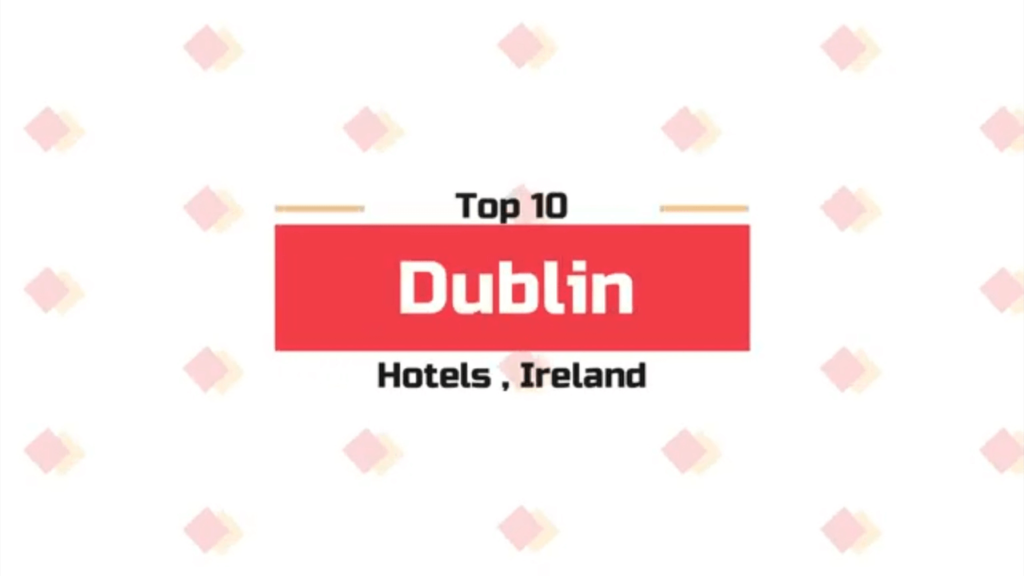Ireland is a dream destination — rolling green hills, dramatic coastlines, charming villages, and vibrant cities. But if you’re not careful, accommodation costs can eat up a large chunk of your travel budget. The good news? With the right strategies, you can enjoy Ireland’s magic without overspending on a place to stay.
As someone who has traveled extensively across Ireland — from cozy B&Bs in Dingle to budget hostels in Dublin — I’ve learned that finding affordable accommodation here is all about planning, flexibility, and knowing where to look.
In this guide, I’ll share proven tips, insider tricks, and expert recommendations to help you find cheap accommodation in Ireland without compromising comfort.
Why Finding Cheap Accommodation in Ireland Matters
Tourism in Ireland has grown steadily in recent years. According to Fáilte Ireland, the national tourism development authority, the country welcomed over 11 million overseas visitors in 2023, with popular spots like Dublin, Galway, and the Wild Atlantic Way drawing the biggest crowds.
High demand means higher prices, especially during the peak season (June–August). The average hotel room in Dublin can cost €160–€200 per night in summer, while in smaller towns prices average €90–€120. Knowing how to find budget-friendly alternatives can save you hundreds of euros during your trip.
1. Choose the Right Time to Travel
Accommodation prices in Ireland can fluctuate drastically depending on the season.
- Low Season (November–March) – Best for budget travelers. Prices can be 30–50% lower. Many hotels offer deals to attract visitors during the quieter months.
- Shoulder Season (April–May & September–October) – Still affordable but with milder weather and fewer crowds.
- Peak Season (June–August) – Expensive and crowded. If traveling then, book 6–9 months in advance.
Personal Tip: I once booked a Dublin city center hotel in late January for €85 per night, which cost €195 in July.
2. Explore Budget-Friendly Accommodation Types
Ireland offers more than just hotels. Here are cost-effective options:
| Type of Accommodation | Average Price per Night | Pros | Cons |
|---|---|---|---|
| Hostels | €20–€45 | Cheap, social atmosphere, central locations | Shared bathrooms, less privacy |
| B&Bs (Bed & Breakfast) | €50–€90 | Breakfast included, local hospitality | Limited facilities |
| Guesthouses | €60–€100 | Home-like feel, smaller crowds | Fewer amenities |
| Self-Catering Apartments | €70–€120 | Kitchen to cook meals, good for groups | Cleaning fees may apply |
| Camping/Glamping | €15–€60 | Scenic nature stays | Weather-dependent |
| Farm Stays | €50–€90 | Authentic rural experience | Remote locations |
3. Use Price Comparison Websites & Apps
Before booking, compare prices across platforms. Popular tools include:
- Booking.com – Great for hotels, B&Bs, and hostels.
- Hostelworld – Best for budget hostels.
- Airbnb – Ideal for longer stays or groups.
- Trivago – Compares multiple booking sites.
- Kayak – Tracks price trends.
Pro Tip: Always check the official hotel website after finding a deal online — sometimes they offer direct-booking discounts.
4. Stay Outside Major Tourist Areas
Staying just a few kilometers away from tourist hubs can dramatically reduce costs.
- Instead of Dublin City Centre, try Drumcondra or Rathmines.
- Instead of Galway City, try Oranmore or Claregalway.
- Instead of staying at Killarney town center, look at Fossa or Beaufort.
Public transport in Ireland is reliable, so you can easily commute.
5. Take Advantage of Special Offers & Membership Discounts
- Early Bird Discounts – Book months in advance to secure lower rates.
- Last-Minute Deals – If you’re flexible, apps like HotelTonight can help.
- Loyalty Programs – Chains like Jurys Inn and Clayton Hotels offer points and discounts.
- Student & Senior Discounts – Some hostels and B&Bs offer reduced rates.
6. Consider Volunteering or Work Exchanges
Platforms like Workaway and WWOOF Ireland allow you to work a few hours a day in exchange for free accommodation and sometimes meals. It’s an excellent way to meet locals and save money.
7. Book Directly with Small B&Bs
Many small Irish B&Bs don’t appear on big booking platforms. Contacting them directly can give you better rates and flexibility. Plus, you get that famous Irish hospitality right from the start.
My Personal Experience
When I traveled the Wild Atlantic Way, I stayed in a family-run B&B in Lahinch for €55 per night, breakfast included. The owners recommended local, free attractions I’d have otherwise missed, like hidden cliff walks away from tourist crowds. That one choice saved me over €200 compared to staying in a nearby hotel.
FAQs – Finding Cheap Accommodation in Ireland
1. What’s the cheapest month to visit Ireland?
January and February are generally the cheapest months for accommodation.
2. Are hostels safe in Ireland?
Yes, most hostels are clean, secure, and regulated. Look for ones with good reviews and lockers.
3. Can I find cheap accommodation in Dublin city centre?
Yes, but you’ll need to book very early or choose hostels and budget hotels.
4. Is Airbnb cheaper than hotels in Ireland?
For groups or longer stays, yes. For short solo stays, B&Bs can be cheaper.
5. How far in advance should I book to get the best deals?
For peak season, book 6–9 months ahead. For off-season, 1–3 months is enough.
Final Thoughts
Finding cheap accommodation in Ireland isn’t about compromising on quality — it’s about planning smartly, being flexible, and exploring all options. Whether you’re staying in a lively hostel in Galway, a rustic farm in Kerry, or a cozy B&B along the Wild Atlantic Way, budget travel in Ireland is very possible.
If you’re planning a trip and want tailored recommendations, feel free to reach out — I’m always happy to help fellow travelers discover the best stays without breaking the bank.

Hi, I’m Tanvir, the founder and author of Explore Ireland Now. With a deep love for Ireland and its rich culture, history, and landscapes, I created this site to share everything that makes this beautiful country worth exploring. Whether you’re a local looking for hidden gems or a traveler planning your next adventure, I provide insightful guides, tips, and recommendations to help you experience Ireland to the fullest.
From stunning landscapes to vibrant cities and quaint villages, Ireland is full of wonders waiting to be discovered. Through my personal experiences and research, I aim to bring you the most up-to-date information and inspiration for your journey.
Thank you for visiting Explore Ireland Now—I hope my content helps you uncover all that this incredible country has to offer! If you have any questions or need travel advice, feel free to reach out.



